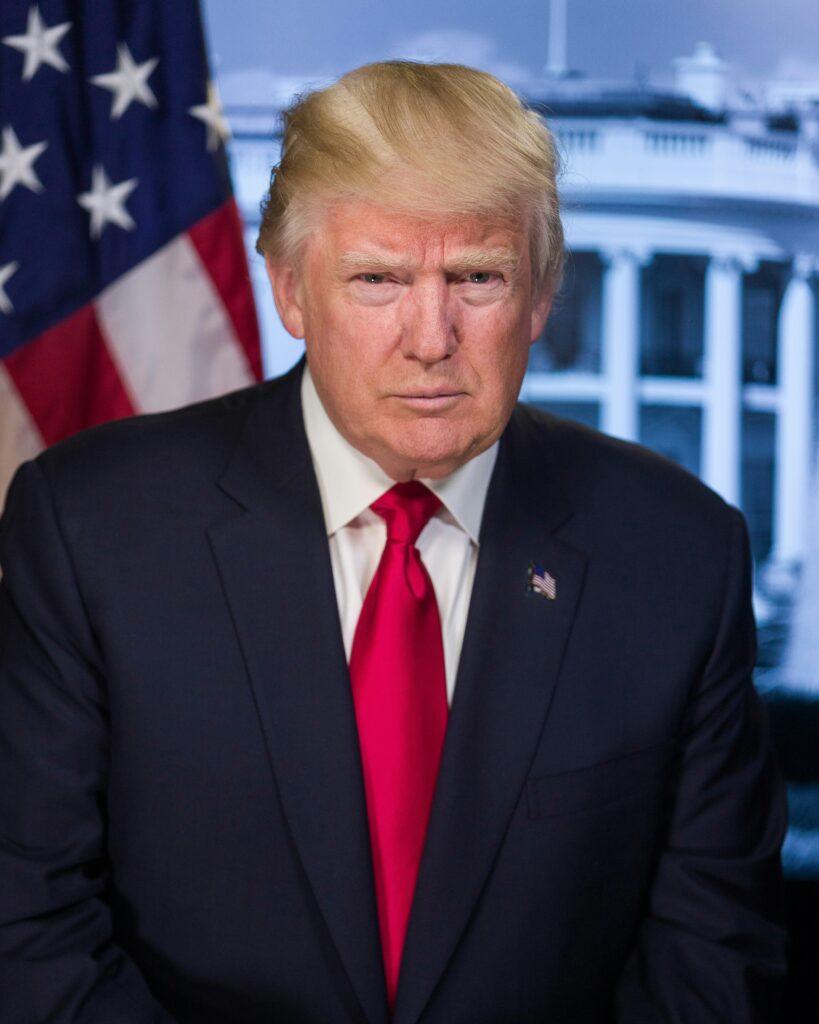Why Trump’s Crypto Reserve Needs a Stronger Privacy Layer

Table of Contents
The Rise of Trump’s Crypto Holdings
Former U.S. President Donald Trump has emerged as an unexpected crypto holder, reportedly accumulating significant amounts of Bitcoin (BTC) and other digital assets. This shift aligns with the growing political and institutional acceptance of cryptocurrencies, but it also raises questions about the privacy and security of his holdings. With regulatory scrutiny intensifying, the need for a strong privacy layer is more critical than ever.
Trump’s shift toward cryptocurrencies is particularly notable given his past skepticism. Previously, he dismissed Bitcoin as a “scam” and expressed concerns over its potential to facilitate illicit activities. However, his recent foray into digital assets signals a change in perspective, possibly driven by the increasing role of crypto in finance and politics. This change also positions him within a broader movement of political figures acknowledging the transformative potential of blockchain technology.
The Growing Importance of Privacy in Crypto
Privacy in cryptocurrency transactions is a hot-button issue. While blockchain technology ensures transparency, it also exposes transaction details to public scrutiny. High-profile figures, such as Trump, face heightened risks, including financial tracking, targeted attacks, and unwanted government intervention. Without robust privacy measures, his holdings remain vulnerable to potential threats.
Public Ledger Transparency: A Double-Edged Sword
Most cryptocurrencies operate on transparent blockchains, allowing anyone to track transactions. While this fosters trust and security, it also compromises personal privacy. For political figures and high-net-worth individuals, this level of exposure can be risky. Implementing privacy-enhancing solutions can help mitigate these risks without undermining blockchain integrity.
For example, Bitcoin’s public ledger records every transaction, making it relatively easy for blockchain analysts to trace transactions. While pseudonymous, Bitcoin addresses can be linked to individuals through various on-chain and off-chain data points. This lack of privacy is a significant concern, particularly for individuals who require financial confidentiality.
Regulatory Challenges and Privacy Coins
The U.S. government has been tightening its grip on crypto regulations, focusing on anti-money laundering (AML) and know-your-customer (KYC) policies. Privacy coins like Monero (XMR) and Zcash (ZEC) offer enhanced anonymity but face increased scrutiny. If Trump’s crypto strategy includes privacy-focused assets, regulatory roadblocks may pose challenges.
The government’s concern over privacy coins stems from their ability to obscure transaction details, making it difficult to track financial movements. Regulatory agencies argue that this could facilitate illicit activities, such as money laundering or tax evasion. However, privacy advocates counter that financial privacy is a fundamental right, and these tools are essential for maintaining confidentiality in an increasingly surveilled digital world.
Privacy Solutions for Trump’s Crypto Holdings
To secure his digital wealth, Trump could explore several privacy-enhancing solutions:
1. Coin Mixing Services
Bitcoin mixing services, like CoinJoin, allow users to obfuscate transaction trails by blending multiple transactions. This makes it difficult for blockchain analysts to trace the origin and destination of funds.
Mixing services work by pooling multiple transactions together and redistributing them, effectively breaking the traceable link between sender and recipient. While useful for privacy, these services have come under regulatory scrutiny due to their potential misuse. Some jurisdictions have even cracked down on mixing platforms, making them a legally risky option.
2. Layer-2 Solutions
The Lightning Network offers off-chain transactions, reducing exposure on the public ledger. This not only enhances scalability but also improves transactional privacy.
By conducting transactions off the main blockchain, the Lightning Network enables near-instant payments with minimal fees. More importantly, these transactions are not immediately recorded on the main chain, providing an added layer of privacy. If adopted widely, such solutions could significantly enhance the privacy of high-profile crypto users.
3. Privacy-Focused Wallets
Using wallets with built-in privacy features, such as Wasabi Wallet or Samourai Wallet, can help enhance transactional anonymity.
These wallets integrate tools like CoinJoin and Ricochet transactions, which add extra layers of obfuscation. Additionally, they avoid address reuse, ensuring that each transaction remains as private as possible. For a figure like Trump, using a privacy-focused wallet could be a key step toward securing his holdings.
4. Decentralized Finance (DeFi) Privacy Tools
Emerging DeFi protocols incorporate zero-knowledge proofs (ZKPs) and other cryptographic techniques to enable confidential transactions without sacrificing security.
Zero-knowledge proofs allow users to prove the validity of a transaction without revealing the underlying details. This technology is increasingly being adopted in privacy-focused blockchain projects, offering a promising avenue for those seeking enhanced financial confidentiality.
The Political and Financial Implications
Trump’s involvement in crypto could have political ramifications, especially if privacy measures are seen as circumventing regulatory oversight. However, advocating for privacy in crypto isn’t about illicit activities—it’s about financial freedom and protection against overreach. If privacy becomes a cornerstone of his crypto strategy, it could spark broader discussions about digital sovereignty and personal financial security.
For instance, privacy in crypto is a major topic of debate among policymakers. Some argue that increased transparency is necessary for regulatory compliance, while others insist that individuals should have the right to control their financial data. If Trump openly supports crypto privacy, it could influence how future administrations approach blockchain regulations.
Additionally, his stance on financial privacy could resonate with libertarian-leaning voters and crypto enthusiasts. Many in the crypto community advocate for decentralized financial systems that operate outside of traditional banking structures. If Trump aligns himself with this movement, it could bolster his appeal among digital asset investors.
Conclusion
As Trump’s crypto holdings grow, so do the concerns surrounding their privacy and security. Implementing privacy layers is not just a matter of personal financial safety but a broader issue of digital rights in an evolving regulatory environment. Whether through privacy coins, mixing services, or layer-2 solutions, ensuring anonymity in the crypto space is more crucial than ever.
The future of crypto privacy will likely depend on the balance between regulatory oversight and personal financial freedom. For high-profile individuals like Trump, adopting privacy-enhancing measures could set a precedent for how digital assets are managed securely. As the crypto industry continues to evolve, privacy will remain a key battleground in the fight for financial sovereignty.





